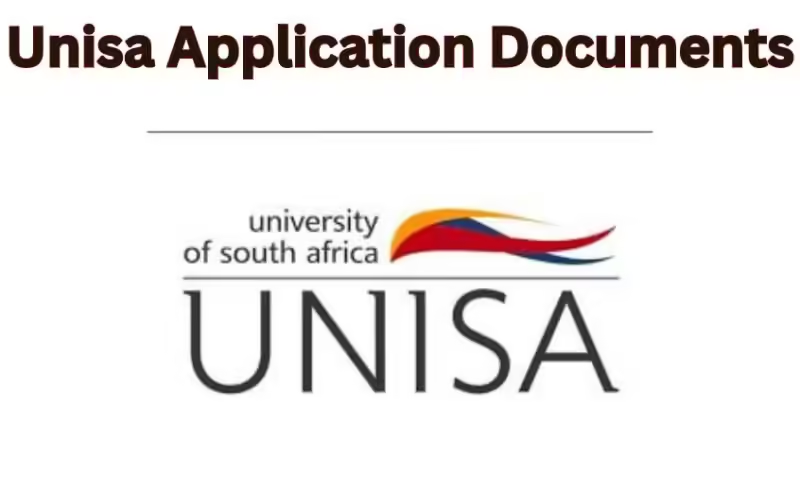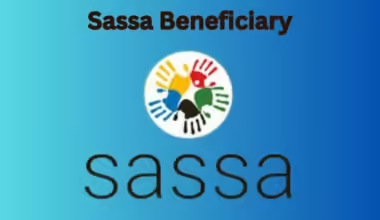Knowing what paperwork is required for a seamless application process is crucial if you want to apply to the University of South Africa (UNISA). UNISA is well known for its adaptable remote learning programs, which serve a wide range of industries, including engineering, business, and law. Because of its flexibility, it’s the best option for international and South African students who need to balance their studies with other obligations.
A few essential documents are required before you can begin your UNISA application. These usually consist of a current passport-sized photo, verification of your prior qualifications (like transcripts from school or university), and a certified copy of your South African ID or passport, if you’re a foreign applicant. You might also require evidence that the application cost was paid.
For South African applicants, confirm that the certification of your documents satisfies UNISA’s standards. International students should make sure that their documentation is checked by the laws of their native country and translated into English if needed.
Gaining access to the extensive array of academic and support services that UNISA provides will be simpler if you comprehend and prepare these documents ahead of time. Your first step to successful admission to this top distance-learning college is having the necessary documentation ready, regardless of your goals—a diploma, degree, or postgraduate qualification.
What Documents Are Needed for The Unisa Application?
When applying to the University of South Africa (UNISA), it’s critical to understand which paperwork is required to finish the process. By supplying the appropriate paperwork, you can be confident that your application will be handled quickly and that the program you’re interested in will accept you.
The essential paperwork needed for applicants from South Africa are:
- Certified Copy of Your National Senior Certificate (NSC): Your matriculation certificate, which is essential for verifying your educational background, is this.
- Certified Copy of Your South African ID: Attests to your citizenship and identity.
- Proof of Payment: Provide proof of any application or registration money you have already paid.
International students will need:
- Certified Copy of Your Passport: This is necessary to confirm your citizenship and identity.
- Certified Copies of Your Qualifications: Give evidence of your prior academic success. If needed, these should be translated into English.
- Proof of English Proficiency: You may be asked to produce test results, such as the results of the TOEFL or IELTS if your program requires it.
Having these materials on hand will facilitate the application process and enable you to fully benefit from UNISA’s varied and adaptable study options. To prevent delays and to verify that you are prepared for the course you have chosen, make sure all of your documents are properly certified.
Does Unisa require certified documents?
As part of the admissions process, you will be required to submit certified copies of certain documents if you are applying to the University of South Africa (UNISA). Both foreign and South African applicants need to provide certified copies of their passports or IDs. A certified copy of your National Senior Certificate (matriculation certificate) or a comparable credential is also needed.
But exactly what does “certified” entail? The procedure of certification involves having copies of your documents checked against the originals by a designated individual, such as a police officer, a lawyer, or a commissioner of oaths. This guarantees that the documents you submit are authentic and fulfill UNISA’s admission standards.
It is also necessary to certify any additional pertinent degrees or certificates. This aids UNISA in confirming your academic history and that you fulfill the minimal prerequisites for the program of your choice.
Check out the official UNISA website or get in touch with the admissions office for comprehensive guidance on how to have your documents validated. Having certified documentation will expedite the application process and enable you to begin your UNISA journey as soon as possible.
What are the minimum requirements for Unisa?
To ensure that they are adequately prepared for the program of their choice, prospective students must fulfill some minimal prerequisites to apply to the University of South Africa (UNISA). Here is a brief guide explaining the necessary paperwork and credentials:
- Educational Qualifications: A National Senior Certificate, often known as a matriculation certificate or a comparable credential, is required. This is a must for every application.
- Admission Point Score (APS): Program-specific APS requirements differ:
- For a higher certificate, a minimum APS of 15 is required.
- For a diploma, the minimum APS needed for a diploma is 18.
- For a bachelor’s degree, an APS of 21 or higher is required.
- Subject and Grade Requirements: Minimum grades or additional subject requirements may apply to particular programs. It’s crucial to look for any additional requirements in the program specifics.
- Proof of English Proficiency: To guarantee that you can engage in class discussions and finish assignments, certain programs might ask for documentation of your English language skills.
To make sure you meet UNISA’s entrance requirements, make sure you acquire all required paperwork and confirm your APS score. To obtain more comprehensive details customized to your unique circumstances or desired program, please visit UNISA’s official website or get in touch with their admissions office.
How long does it take for Unisa to process applications?
Many aspiring students ask, “How long does UNISA take to process applications?” before applying to the University of South Africa (UNISA). It can be beneficial to your planning to understand the processing timeline.
The typical processing period for an application to UNISA is between two and eight weeks. This period may change depending on several variables, such as the program for which you are applying and the season. For instance, because of the high volume of applications, processing times may be longer during peak periods, such as the beginning of the academic year.
You must submit your application as soon as possible to guarantee a seamless application process. To stay informed, you should check the status of your application frequently after submitting.
Use the official UNISA website or get in touch with the admissions office directly for the most accurate and current information on processing timelines. This will help you stay on track with your academic goals and give you the most recent information pertinent to your application.






